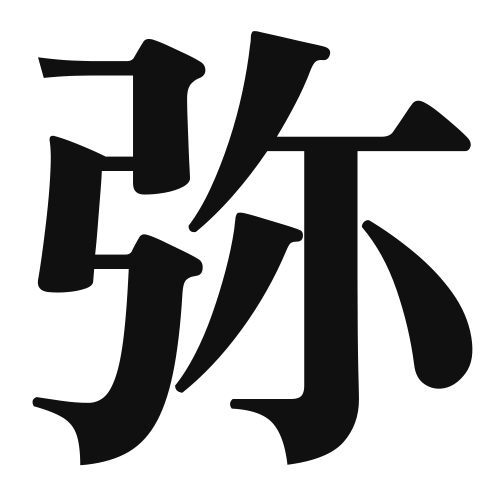1. Overview of Meaning
The kanji “弥” (pronounced “mi” or “ya”) generally means “to become more and more” or “to fill up.” It conveys a sense of completeness or abundance.
2. Formation and Radical
Formation of the Kanji: The kanji “弥” is classified as a phono-semantic compound (形声文字), which means it combines a phonetic component with a semantic component. The left part of the character is related to sound, while the right part gives a hint about its meaning.
Radical: The radical for “弥” is “弓” (bow), which is often associated with archery and can imply a sense of extension or reaching out.
3. Examples of Usage
Common Words and Phrases: Some frequently used words that include “弥” are “弥生” (Yayoi, a period in Japanese history) and “弥勒” (Miroku, a future Buddha in Buddhism).
Example Sentences in Daily Conversation:
- この花は弥生の季節に咲きます。 (These flowers bloom in the Yayoi season.)
- 彼の努力は弥が上にも実を結んだ。 (His efforts have borne fruit more and more.)
4. Synonyms and Antonyms
Similar Kanji: A similar kanji is “満” (man), which means “full” or “satisfied.” While both convey a sense of fullness, “弥” emphasizes the process of becoming more full over time.
Opposite Kanji: An antonym is “減” (gen), which means “to decrease” or “to diminish,” representing the opposite concept of becoming less.
5. Cultural and Historical Background
Relation to Japanese Culture: The kanji “弥” is often used in cultural contexts, such as in the names of historical periods or in religious texts, reflecting its significance in Japanese history.
Proverbs and Idioms: One common idiom is “弥弥たる” (miyataru), which means “to become more and more,” often used to describe a situation that is improving or growing.
